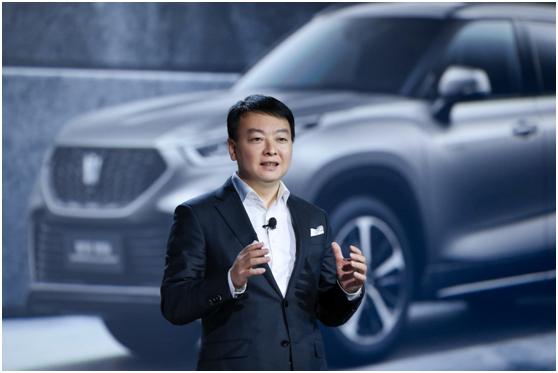Title: Defending Automotive Brands: A Manifesto for Ensuring Brand Equity and Reputation
Title: Defending Automotive Brands: A Manifesto for Ensuring Brand Equity and ReputationAutomotive brands are an integral part of the global economy, contributing significantly to employment, innovation, and consumer choice. In recent years, however, automotive brands have faced increasing competition, environmental scrutiny, and reputational risks. This manifesto aims to provide a comprehensive framework for protecting brand equity and reputation in the dynamic automotive landscape. The manifesto highlights the following key principles: 1. Embrace Digital Transformation: Adopt cutting-edge technologies such as artificial intelligence, machine learning, and the Internet of Things (IoT) to enhance product design, manufacturing processes, and customer experiences. 2. Foster Sustainability: Invest in green technology and sustainable practices to mitigate environmental impacts and align with evolving consumer expectations for eco-friendly products. 3. Prioritize Safety: Ensure that all products meet or exceed global safety standards, regularly update safety features, and engage in transparent communication with customers regarding potential safety concerns. 4. Cultivate Customer Engagement: Build strong relationships with consumers through personalized interactions, responsive customer service, and continuous improvement in product offerings and user experiences. 5. Strengthen Global Collaboration: Collaborate with other industries, government agencies, and regulatory bodies to promote industry standardization, shared knowledge, and best practices for ensuring brand equity and reputation. 6. Monitor and Mitigate Risks: Regularly assess internal and external threats to brand equity and reputation, develop effective risk management strategies, and promptly address any issues that arise.By adhering to these principles, automotive brands can protect their brand equity and reputation while navigating the complex challenges facing the industry. This manifesto represents a call to action for companies to invest in their brands' long-term sustainability by adopting a proactive approach to managing risks and fostering positive relationships with stakeholders.
In today's fiercely competitive automotive market, brand equity has become a critical factor that determines a manufacturer's success or failure. The rise of new entrants, coupled with evolving consumer preferences, has made it more challenging than ever for carmakers to safeguard their brand image and reputation. In this context, it is essential to develop a comprehensive strategy that focuses on protecting brand equity and ensuring customer satisfaction. This article aims to provide a roadmap for automakers who want to defend their brand name and maintain a strong presence in the global automotive industry.
1. Understanding Brand Equity and its Importance
Brand equity refers to the intangible assets that arise from a brand name, such as reputation, loyalty, and recognition. It represents the sum total of all the experiences that customers have with a brand and the value they attach to it. In essence, brand equity is the difference between a high-priced product and a low-priced product; it is the perceived quality of the product and the trust consumers place in it.
The importance of brand equity cannot be overstated. It is the primary driver of a company's profitability, as it influences consumer purchasing decisions, leads to repeat business, and fosters customer loyalty. Moreover, a strong品牌形象 can help a company differentiate itself from competitors and create barriers to entry for new entrants. Therefore, safeguarding brand equity should be a top priority for every automaker.

2. The Risks of Competitors Stealing Market Share
One of the biggest threats to automakers today is竞争对手试图通过价格战、产品创新或营销策略来窃取市场份额。 These tactics can be effective in the short term but can ultimately harm a company's brand equity if they undermine customer confidence in the product or brand. For example, if a competitor launches a lower-priced vehicle with similar features, consumers may start to view the original brand as being less desirable or valuable. To counter these risks, automakers must remain vigilant and proactive in their approach to defending their brand.
3. Strategies for Protecting Brand Equity and Reputation
a. Focus on Quality: Quality is at the heart of any successful brand, and automakers must continue to invest in research and development to produce cars that meet or exceed consumer expectations. By delivering high-quality vehicles, companies can build trust with customers and reinforce their reputation for excellence.
b. Invest in Marketing and Advertising: A strong marketing and advertising campaign can help differentiate a brand from its competitors and create emotional connections with customers. Automakers should invest in targeted campaigns that showcase their unique selling points and highlight the benefits of owning one of their products.
c. Provide Exceptional Customer Service: Excellent customer service is crucial for maintaining brand equity and reputation. Companies should go beyond simply meeting customer expectations; they should strive to exceed them by offering personalized attention, timely responses to inquiries, and resolving complaints promptly. This will not only keep customers happy but also help build a positive reputation among potential buyers.
d. Foster Employee Engagement and Retention: Happy employees are more likely to produce high-quality work that supports the brand's values and mission. Automakers should focus on creating a positive work environment that attracts top talent and motivates employees to contribute to the company's success. By investing in employee training, career development opportunities, and competitive compensation packages, companies can ensure that their employees are invested in the brand's success.

e. Build Strong Partnerships with Suppliers and Dealers: The success of an automaker depends on the support of its partners in the supply chain. Manufacturers should work closely with suppliers to ensure that they are delivering high-quality materials, components, and parts that align with the brand's values and standards. Similarly, they should collaborate with dealers to provide exceptional sales and service experiences that meet customers' needs and expectations.
4. Monitoring Brand Equity Regularly
To effectively defend their brand equity, automakers must regularly monitor their reputation and track changes in consumer perceptions. They can use tools like social media monitoring, surveys, and focus groups to gather feedback from customers and stakeholders. By staying attuned to emerging trends and issues, companies can address concerns quickly and respond proactively to protect their reputation and maintain customer trust.
5. Adapting to Changing Consumer Preferences
As consumer preferences evolve over time, automakers must be prepared to adapt their strategies accordingly. For example, there may be increasing demand for electric or hybrid vehicles due to environmental concerns, so manufacturers should consider investing in these technologies if possible
与本文知识相关的文章:



